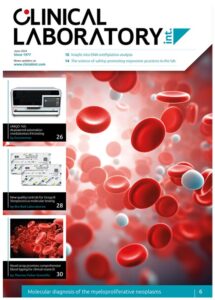BioMed X launches two new research groups in autoimmunity and drug delivery in collaboration with Janssen
German independent research institute BioMed X has started two new research projects with Janssen Research & Development, one of the Janssen Pharmaceutical Companies of Johnson & Johnson.
The start of these projects represents a major milestone in the strategic partners’ successful collaboration and addresses two challenging new research areas. Both collaborations were facilitated by Johnson & Johnson Innovation.
The new research group PTA (‘Protective Tissue Factors in Autoimmune Diseases’) is led by Mojca Frank-Bertoncelj, MD, PhD, who is joining BioMed X from the University Hospital Zurich in Switzerland. Her research group will develop new approaches to combat chronic inflammatory diseases. The aim is to identify protective factors in the tissue microenvironment of patients with auto-inflammatory diseases with the overall goal of discovering and validating novel drug targets in these diseases.
Dr. Frank-Bertoncelj commented: “We aim to develop a 3D human joint-in-a-dish platform that closely mimics the inflamed joints of patients with rheumatoid arthritis utilizing diverse methodologies including single-cell omics, gene-editing, bio-scaffold manufacturing, and stem to adult joint cell differentiation. This innovative platform will enable high-throughput testing and discovery of novel joint-protective therapeutics.”
The second research group TMI (‘Translocation of Complex Macromolecules Across the Intestinal Epithelial Barrier’) led by Kyungbo Kim, PhD, will investigate novel transport mechanisms in the human intestinal tract that could be used for oral delivery of various macromolar therapeutic modalities. Dr. Kim is joining BioMed X from the University of Kentucky in Lexington, USA.
“Our mission is to characterize the human intestinal epithelial barrier and thereby gain insights into how macromolecular therapeutics may be orally delivered. The biology of the barrier will be explored at the cellular and molecular level,” said Dr. Kyungbo Kim.



